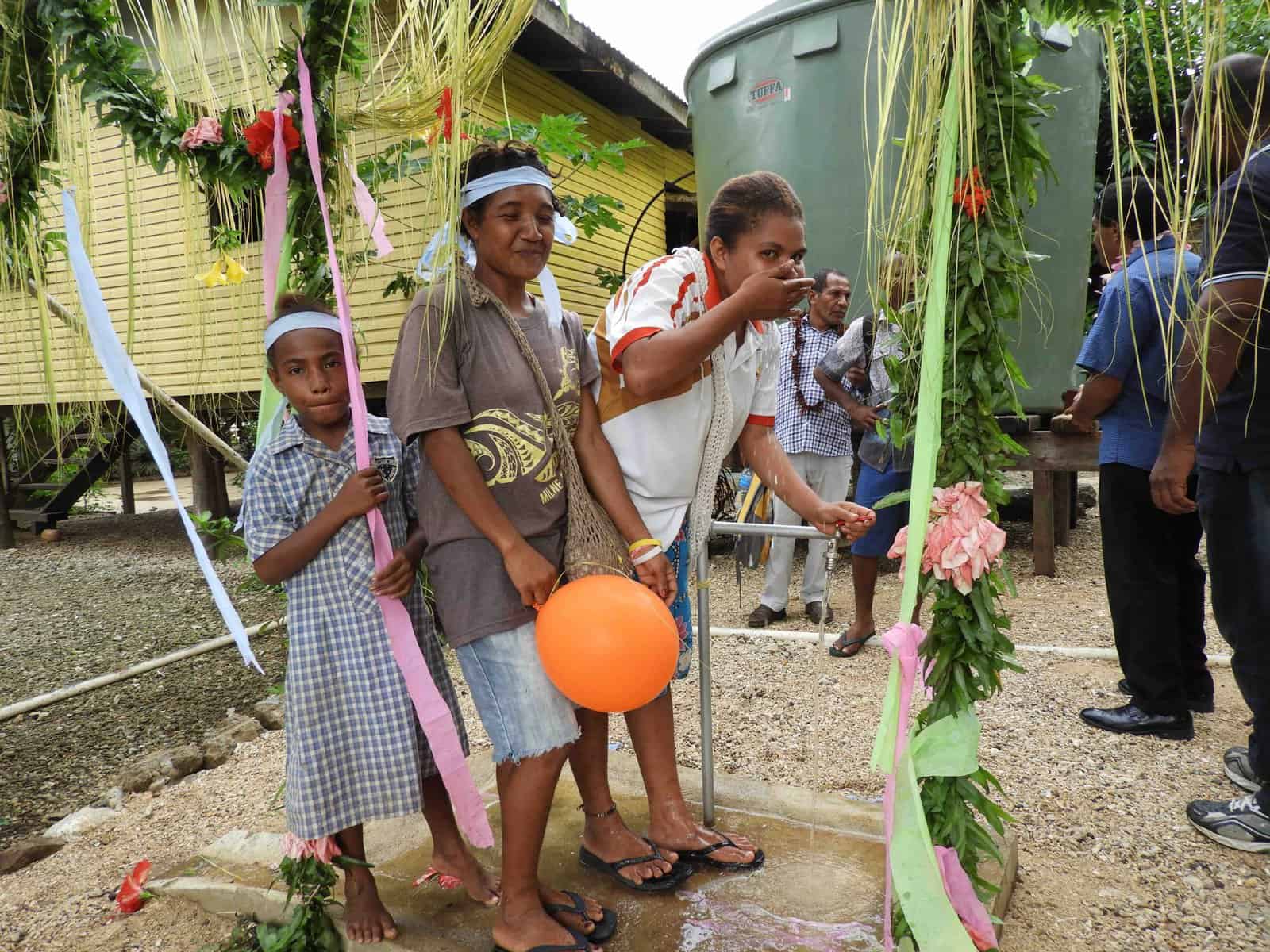Papua New Guinea celebrated its Independence Day on 16 September with a public holiday on Friday, 15 September—marking the occasion in 2023. Moerk Water’s International Business Development Manager, Barbara Brezger recently visited Port Moresby where she was hosted by the Healing the Land Ministry as part of the dedication ceremony for the latest Moerk Water UV Filtration system due to be installed in Kiru, Central Province PNG. This containerised solution, which uses the latest in UV-LED technology, will treat the contaminated wells in Kiru to provide clean water for both, drinking and agricultural use.
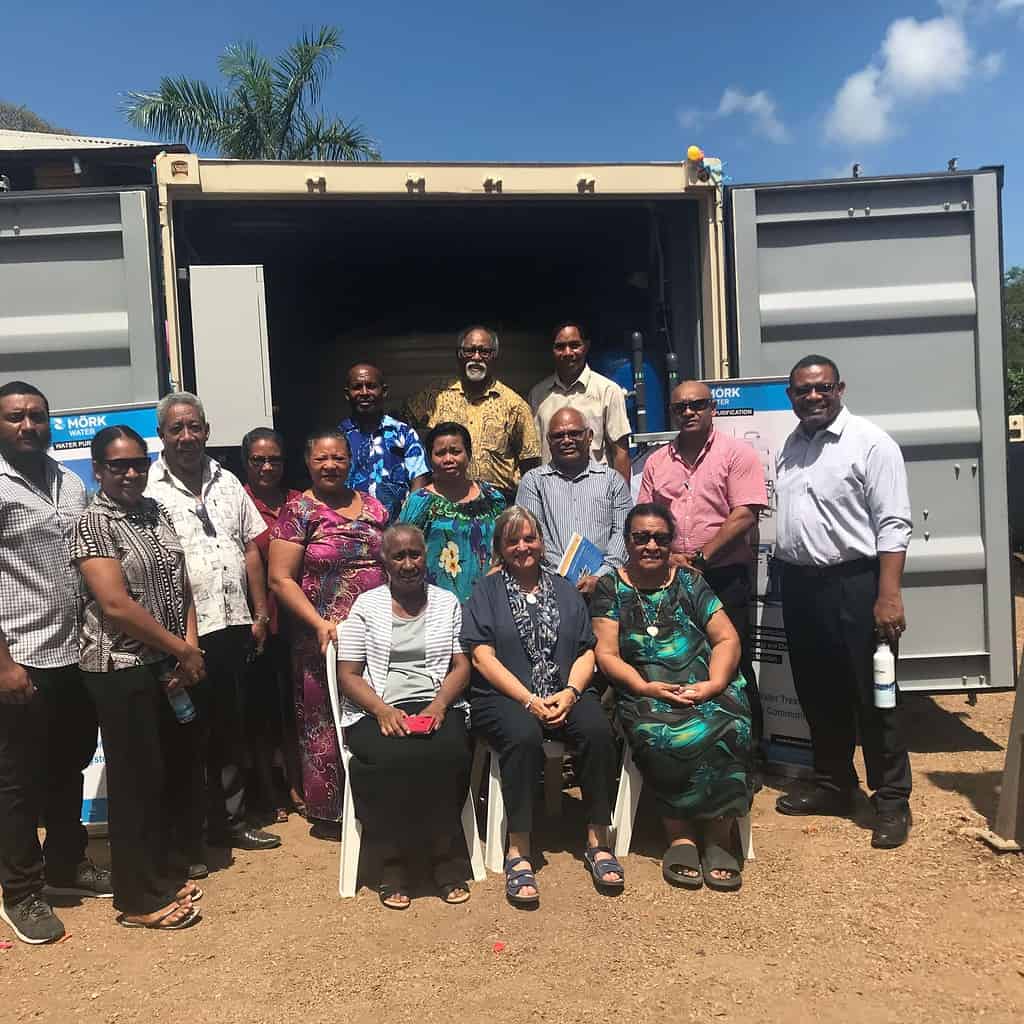
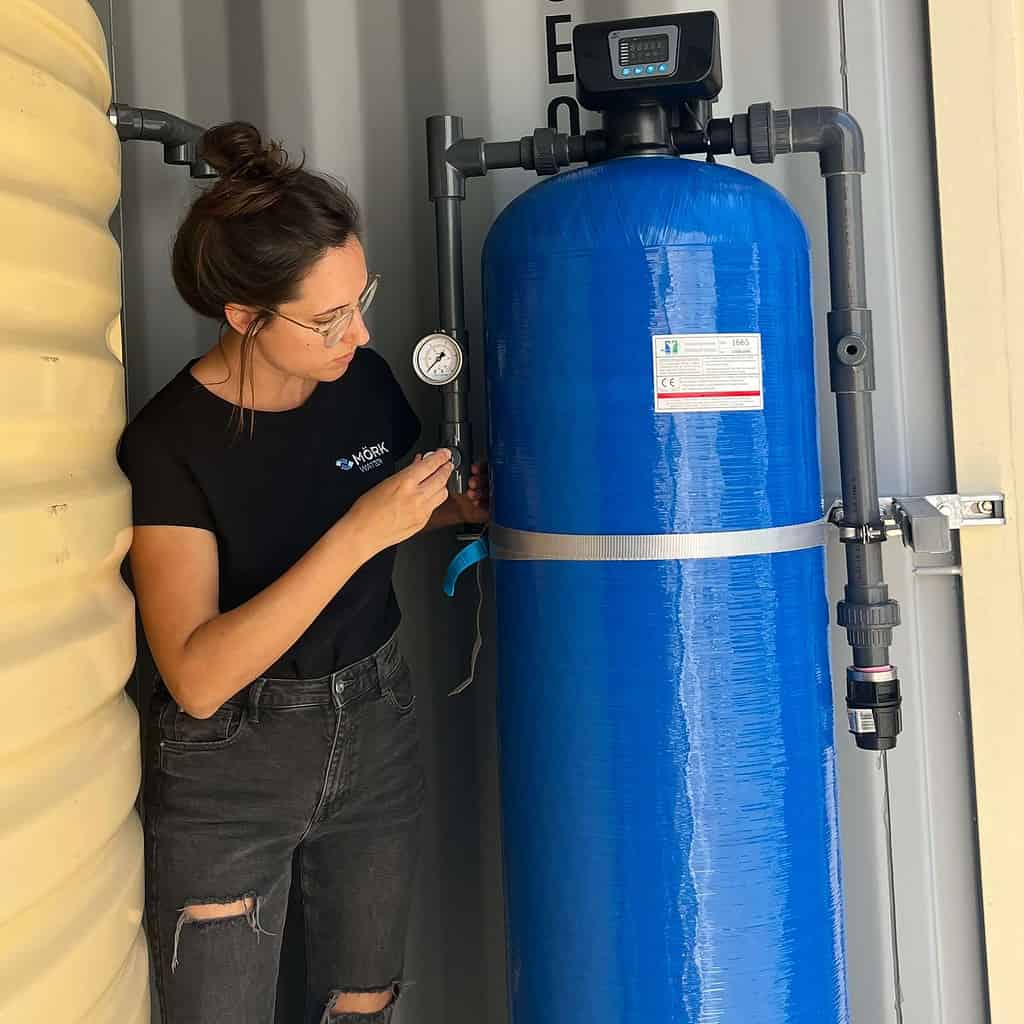
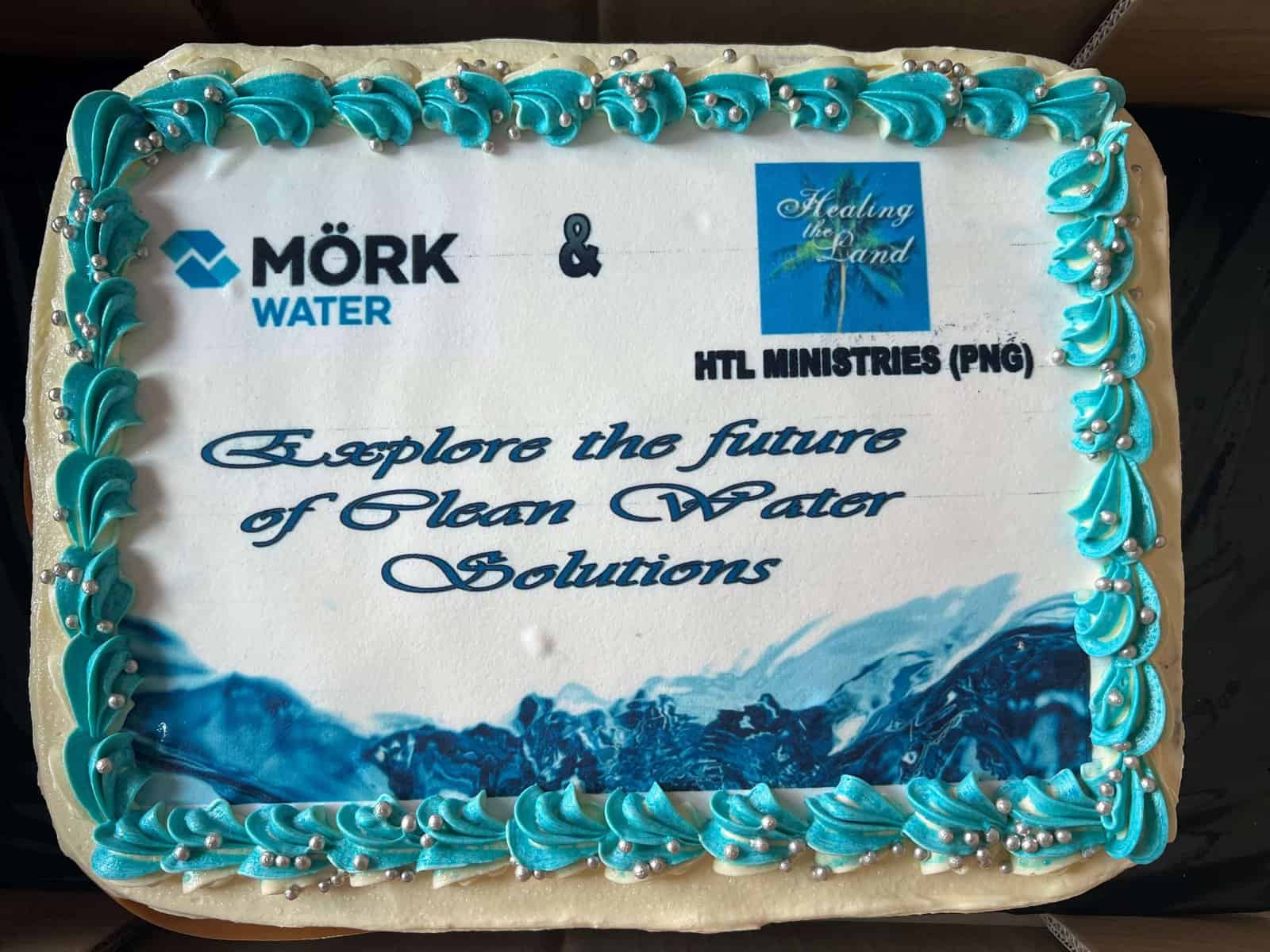
Papua New Guinea faces many challenges supplying fresh water to its inhabitants. According to the latest Joint Monitoring Program report generated by the WHO and UNICEF, only 37% of Papua New Guineans have access to basic water supply. Water supplies in Papua New Guinea are contaminated with bacteria, sediment and heavy metals. Moerk Water has been supplying Papua New Guinean communities with a range of renewable energy-powered membrane filtration and disinfection treatment systems to ensure clean and safe drinking supplies are available to all.
Implementation of solar-powered nanofiltration plant in East Cape village, Milne Bay province, Papua New Guinea
The Need
East Cape village is in Milne Bay province and is located at the eastern most tip of mainland Papua New Guinea. It is an hour drive east from Alotau and is home to some 800-plus people, including another 3,000 transients from the Fergusson Island in the Kiriwina-Goodenough constituency. East Cape experiences the dry season mostly for three months, followed by unpredictable dry spells throughout the year. As a result, most wells dry out forcing closure of schools and aid posts. East Cape villagers mostly drink from water wells. This includes rainwater open shallow wells which are found to have contaminated ground and brackish water making access to clean drinking water a challenge.
Head Teacher Milary Tovarina: “For many years, since the establishment of East Cape Primary School, water has been the major problem. It caused the school to close many times. Students’ learning were disrupted due to water problems. Lives of the general public were affected, especially during the long dry season. Church and Health programs were also disrupted.”
Water purification
Pillar 1 — Technological Solution
- Nanofiltration and UV treatment
- Brackish water intake from a shallow well
- Daily capacity approximately 8,000L product water
- Operating on solar energy only
- Robust and reliable technology
- Chemical-free operation
Pillar 2 — Training: Train the Trainer & Daily Operator
- During and after installation – 4 operators trained
- Recurring training for daily operators and 3 additional people after 1 year
- Daily operator is very committed and trustworthy in looking after the machine and for maintenance and service
- Training for teachers represented through a female teacher. She is the voice of the project and gives sustainability and reliability
- Operators are supported by Moerk Water staff in Perth
Pillar 3 — Community: Ownership & Sustainability
- Agreement with all beneficiaries of the village, in terms of land ownership and responsibility
- Accessible for everyone in the village, day and night
- People with a disability can easily access the water taps
- Implementation of a community water committee
Success following installation
Health Outcomes
- Noticeable improvement in community health, especially with children.
- Reduction in skin diseases, flu, and diarrhoea cases including pneumonia and upper respiratory tract infections.
- More than 350 Primary and Secondary students and teachers could attend school due to improved health.
- Patients and staff at health centre have clean water to drink.
- Treatment of persistent coughs and skin diseases.
- Medical equipment easier to clean, midwife and nurses have clean instruments.
WaSH Outcomes
- More than 800 people have sufficient safe water to drink, cook and personal hygiene.
- A further 3000 transients from the outer islands have the opportunity to take a cherry can water home to their village.
- WaSH improved in all areas as household, schools, health centre and community market.
Social Outcomes
- Schools open all year round (even during droughts) with increased school attendance.
- Women and girls have improved health outcomes and spend less time fetching water.
- People living with disabilities have easy access to water.
Environmental Outcomes
- Powered by renewable energy and greenhouse gas emission free.
- Firewood no longer required to boil drinking water.
Resilience Outcomes
- Drought and disaster resilience provided by permanent, safe and secure water supply.
Testimonies on community impact
The village nurse, Marcia confirmed improved health conditions due to an abundance of safe water:
“One patient always had a cough. Since he drank from the treated water, he has been healthy, and patients with skin diseases got healthy too. Mums and children are healthier now. Flu and diarrhea decreased. We are able to finally clean our instruments for surgery and for the maternal clinic. We are so grateful.”
Head teacher Mr Milary Tovarina:
“Before the installation of this water project, the children were looking unhealthy, and even the entire community. And there were a lot of problems affecting the school’s operation; children came late to school, punctuality was poor, attendance was very poor. When the water was installed, we could see a lot of improvements in attendance and punctuality, and very much in the health of the children. I can say also that the health of the community has improved. The whole community depends on this water. The community really is benefitting from the water. Thank you.”
Karen August, teacher and assistant daily operator for the machine:
“Without food I can live, but without water we can’t live the next day. Before the project was installed, the school got closed because of the lack of water. Now the school stays open during droughts. Charles (the husband of one of the teachers) is taking good care of the machine, operating and cleaning it. All is under control and the water plant works fine.”
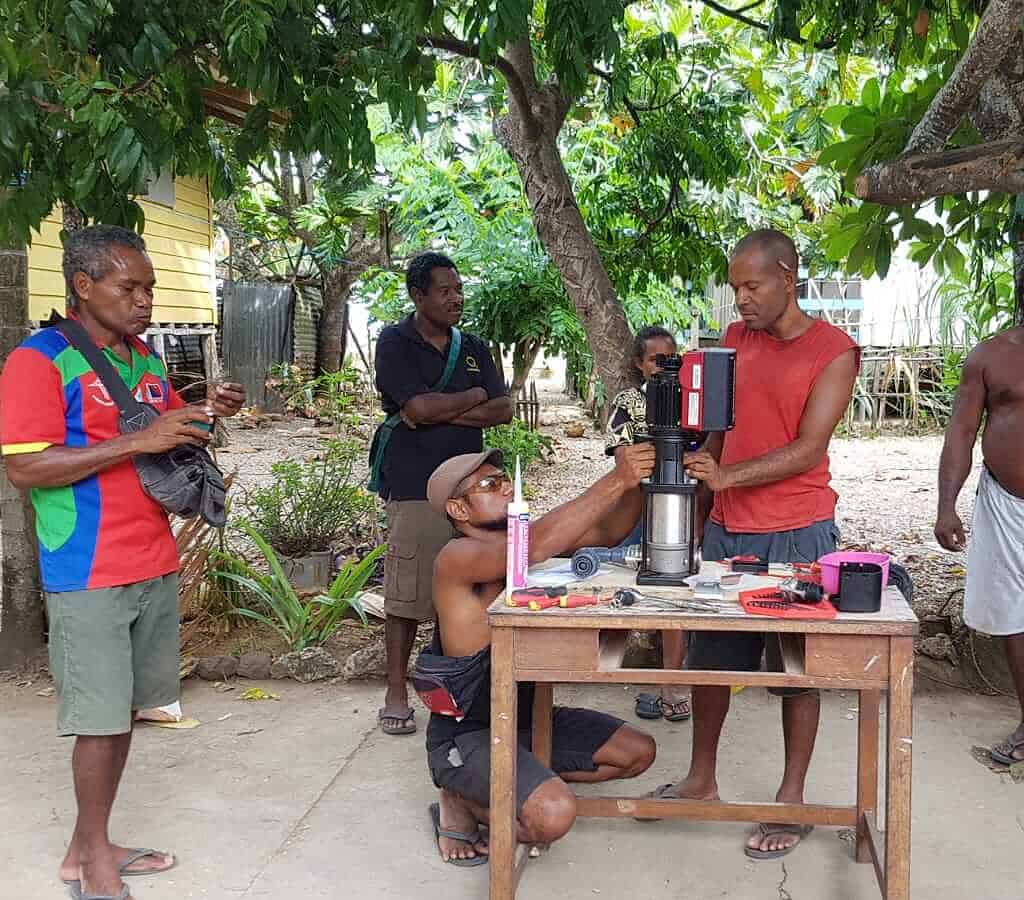
To learn more about Moerk Water, please reach out to us any time on info@moerkwater.com.au or visit our website at www.moerkwater.com.au.
